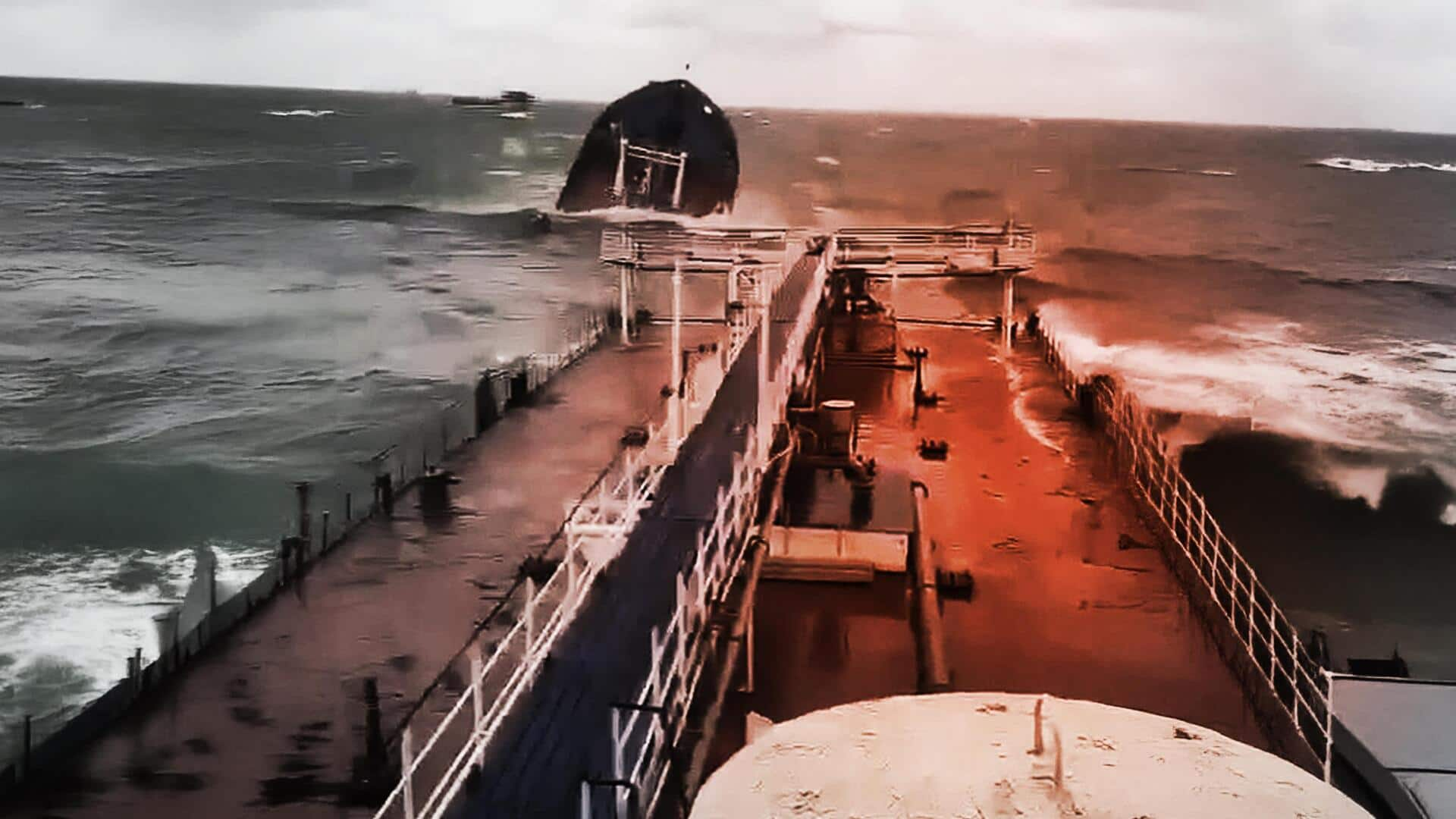
Russian tanker sinks in Black Sea, spills 4,300 tons oil
What's the story
A Russian oil tanker, Volgoneft-212, sank in the stormy Black Sea off Crimea's east coast near the Kerch Strait on Sunday.
The vessel was carrying 4,300 tons of low-grade heavy fuel oil called mazut.
The incident occurred when a large wave hit the tanker, splitting it in half and leaving one of its 15 crew members confirmed dead.
Rescue efforts
Rescue operations and investigations underway
After the incident, Russian emergency services launched a rescue operation using tugboats as well as a Mil Mi-8 helicopter.
Twelve crew members were rescued, with 11 hospitalized and two in serious condition.
Russian investigators have since opened two criminal cases to investigate possible safety violations in connection with this maritime disaster.
Additional incident
Second tanker runs aground amid stormy conditions
In a similar incident, another tanker, Volgoneft-239, ran aground about 80 meters from shore near the port of Taman.
This ship was carrying four tons of fuel oil and had a 14-member crew on board.
Efforts to evacuate Volgoneft-239's crew were halted due to adverse weather conditions, but the emergencies ministry confirmed that they were not in immediate danger.
Political response
Putin orders establishment of working group, Ukraine criticizes Russia
Separately, Russian President Vladimir Putin has ordered the formation of a working group to oversee rescue operations and minimize the environmental impact of the oil spill.
However, Ukrainian officials have criticized Moscow for its handling of the incident.
Dmytro Pletenchuk, Ukraine's navy spokesperson, stated, "These are quite old Russian tankers. You can't go to sea in such a storm."
Ecological impact
Environmental concerns rise over Black Sea oil spill
The Black Sea, which has been a hotbed of military conflict since Russia's full-scale invasion of Ukraine in 2022, now faces the threat of ecological damage from the oil spill.
Experts have warned that the spilled oil products could do severe damage to the war-ravaged marine environment.
Scientists have reported an increase in dolphin and porpoise deaths since the Kremlin launched its all-out attack. Approximately 1,000 cetaceans were killed in 2022, while bottlenose and white-sided dolphin populations have declined.